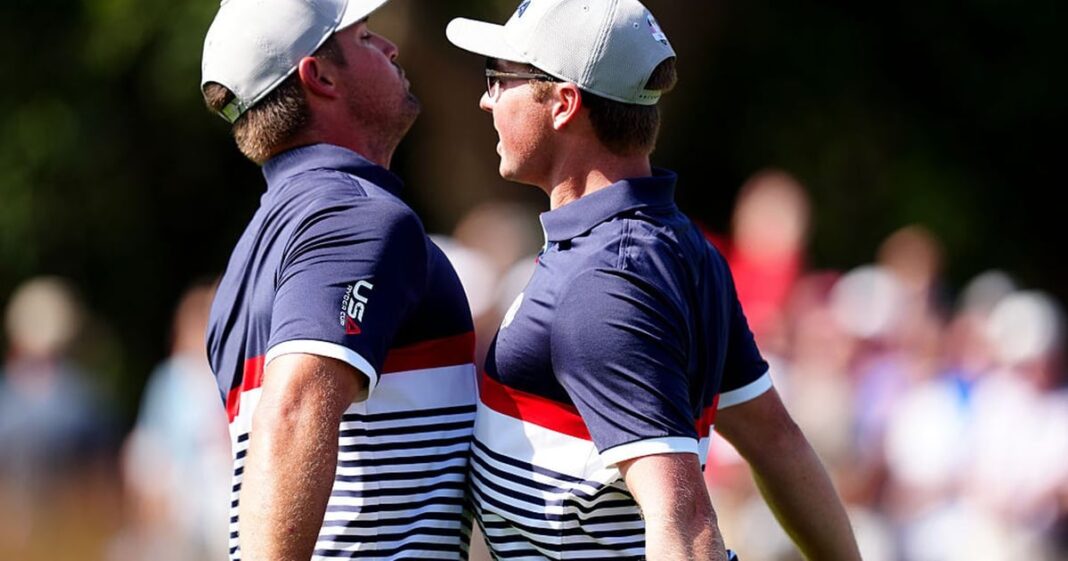Scottie Scheffler’s Ryder Cup Struggles: A Deep Dive
Scottie Scheffler’s performance at the Ryder Cup has become a topic of discussion that prompts head-scratching and wonder. Known for his prowess on the golf course, the number one golfer in the world faced significant challenges during the previous Ryder Cup in Rome, finishing with an underwhelming record of 0-2-2. Given his impressive track record and meteoric rise in the sport since then, it’s baffling to see him struggle once again, especially with this year’s tournament taking place on home soil in the United States.
A Closer Look at Past Performance
Scheffler’s disappointing results in Rome marked a pivotal moment in his career. Expectations were sky-high, considering his earlier achievements, including multiple titles on the PGA Tour. However, the pressure of team play at the Ryder Cup can be a double-edged sword; while individual skill is essential, the dynamics of partnerships and team chemistry often dictate success. The psychological aspect of performing under such scrutiny can be overwhelming, and for Scheffler, it seemed to manifest in an inability to secure wins.
The Role of Home Advantage
This year’s Ryder Cup, held in the U.S., presented a unique opportunity for Scheffler to redeem himself. Home advantage is usually substantial in sporting events, with the benefits of familiar courses and supportive crowds. However, this very expectation can intensify pressure on players. For someone like Scheffler, who has dominated the sport recently, the burden of performing well in front of a home audience might create additional stress. The weight of expectation can easily shift a player’s focus from enjoyment to anxiety, affecting performance.
Learning from the Greats: Michael Jordan’s Influence
Interestingly, on the sidelines of this year’s event sits basketball legend Michael Jordan. His presence is not just a casual nod to sportsmanship; it serves as a potential source of inspiration for athletes facing similar challenges. Like Scheffler, Jordan was heralded as the best player in his field but encountered years of frustration before achieving team success. He won his first MVP award in 1988 but did not secure his first championship title until 1991. His journey illustrates that greatness in individual performance does not automatically translate to team victories.
Jordan’s resilience is a reminder that even the most skilled athletes can face hurdles that seem insurmountable at times. In many ways, his journey underscores the importance of persistence and mental fortitude. For Scheffler, recognizing that setbacks are a part of the path to greatness may help him refocus his mindset and channel his frustrations into determination.
The Dynamic of Team Play
Understanding the nuances of team dynamics in the Ryder Cup is crucial in evaluating Scheffler’s struggles. Golf, at its core, is an individual sport, and its transition to a team format can be tricky. Players must coordinate strategies, support one another’s games, and foster a spirit of camaraderie—all while dealing with their own performance struggles. This intricate dance can be difficult to navigate, especially for those who are more accustomed to singular success.
The complexities of aligning play styles and understanding how to motivate teammates can weigh heavily on even the most seasoned golfers. As Scheffler grapples with these challenges, the key will be finding synergy with his partners, enabling him to harness his individual prowess in a way that contributes to the team’s collective success.
Mental Fortitude: The Key Ingredient
Ultimately, the road to overcoming challenges in competitive sports often comes down to mental fortitude. The best athletes cultivate a level of mental resilience that allows them to rebound from disappointments. For Scheffler, seeking inspiration from figures like Jordan might not only provide motivation but also valuable lessons in perseverance and adaptation.
Indeed, the ability to maintain focus, self-belief, and a positive mindset in the face of adversity can make all the difference. Acknowledging the emotional side of competition might just be the catalyst Scheffler needs to transform his game at the Ryder Cup, capitalizing on the lessons learned from both past experiences and the sporting greats who have navigated similar waters.
As Scheffler moves forward in this high-stakes environment, the lessons, pressures, and experiences all converge to shape his journey in a way that can redefine his future in team competitions.



